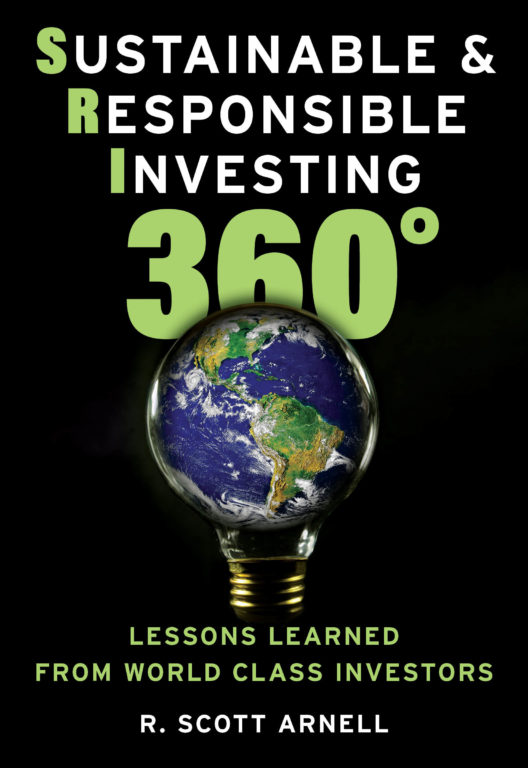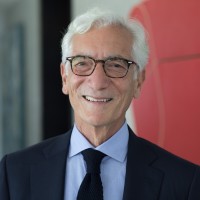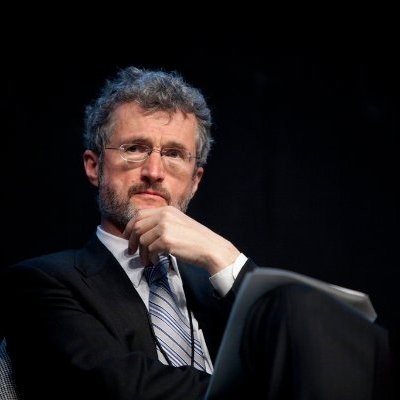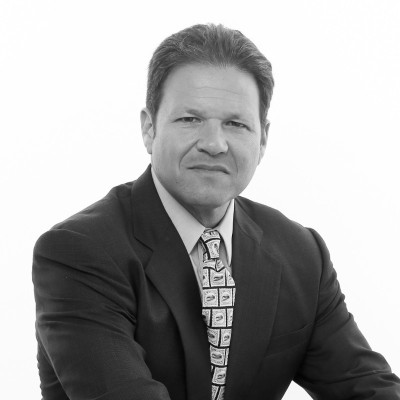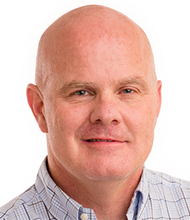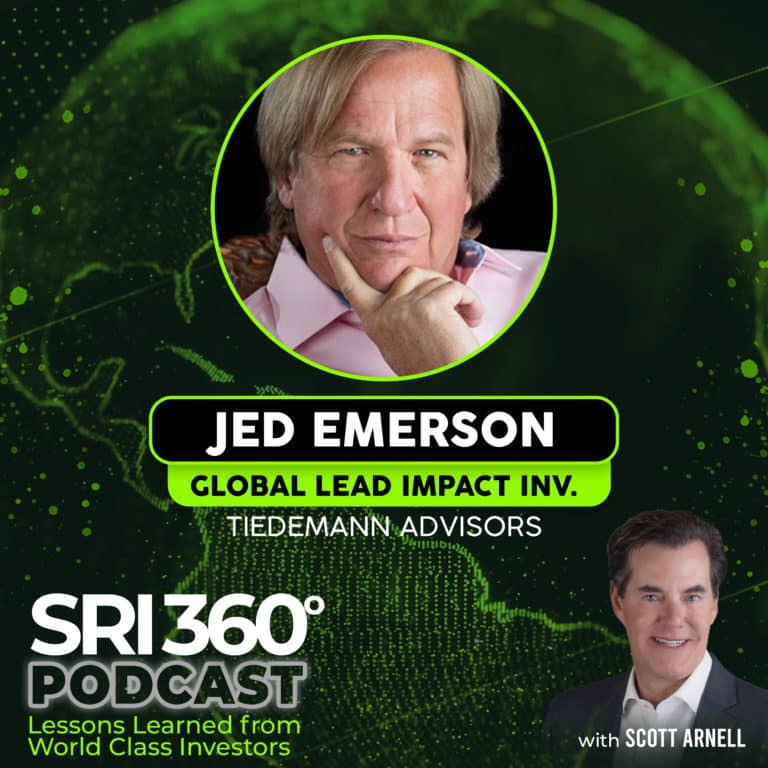
“Start where you are. Don’t get too wrapped up in the language and the terms and the labels. Anything can be viewed through an impact lens and can be managed on that basis. So, if you’re in a firm doing whatever type of investing, all you have to do is start asking uncomfortable questions. About the practice, about the process . . . and you become an impact investor.”
— Jed Emerson
Jed Emerson (@BlendedValue) is an internationally recognized thought leader in impact investing, social entrepreneurship and strategic philanthropy and the Managing Director and Global Lead Impact Investing with Tiedemann Advisors.
He has extensive experience leading, staffing, and advising funds, firms, social ventures, and foundations in pursuance of financial performance alongside social/environmental impact. Emerson has authored numerous articles and papers on the subject, including the first book on impact investing (Impact Investing: Transforming How We Make Money While Making a Difference), which won the 2012 Nautilus Gold Book Award. In 2018 he released his eighth book, The Purpose of Capital: Elements of Impact, Financial Flows and Natural Being.
Originator of the Blended Value concept, Emerson is a Senior Fellow with the Center for Social Investment at Heidelberg University and has held faculty appointments at Oxford, Harvard, Stanford, and Kellogg business schools.
Listen to the episode on Apple Podcasts, Spotify, Overcast, Podcast Addict, Pocket Casts, Castbox, Google Podcasts, Stitcher, Amazon Music, or on your favorite podcast platform. You can watch the interview on YouTube here.
What was your favorite quote or lesson from this episode? Please let me know in the comments.
SCROLL BELOW FOR LINKS AND SHOW NOTES…
SELECTED LINKS FROM THIS EPISODE:
- Connect with Jed Emerson: Twitter | LinkedIN
- KKR and Co. Inc.
- Roberts Enterprise Development Fund (REDF)
- RS Group Asia
- Gates Foundation
- Larkin Street Youth Services
- Blue Haven Initiative
- Acumen Fund
- Outcome Funding (Book)
- Impact Investing: Transforming How We Make Money While Making a Difference (Book)
- The Purpose of Capital: Elements of Impact, Financial Flows and Natural Being (Book)
SHOW NOTES:
[06:44] Focusing on Sociology and Religion – Jed’s grandfather was a pastor of Fifth Avenue Presbyterian Church in New York City for 27 years and started dial-a-prayer in 1957. His father was a Presbyterian minister and left the traditional pulpit ministry to do inner-city Social Ministries and was the Managing Director of the Community Service Society of New York City. At that point, it was preordained that Jed would go down the path related to community activism, meaning, and value, which was combined by sociology and religion.
[07:53] Starting the Larkin Street Youth Services – Jed had been managing the Larkin Street Youth Services after graduating with his master’s in social work. He became a team member with the Presbyterian Health Education and Welfare Association based in New York. They focused on social ministries, affordable housing, food, advocacy, and many more. They also put together advisory groups that would work with church-based ministries grappling with particular strategic decisions/issues.
[09:38] Disillusionment Sets In – Jed had a goal to work in a nonprofit organization and change the world which he thought he would do with Larkin Street Youth Services. At some point, Jed realized that everything he thought he knew about social work was wrong, instead of impact, he had become good at social service politics.
[13:13] Running into George Roberts – After a three-month walkabout from Larkin Street, a gentleman from the Bay area who ran multiple nonprofit organizations contacted him about a client who wanted Jed to do some research. That individual turned out to be George Roberts who challenged Jed to create a way to approach philanthropic and charitable giving informed by investment, business acumen, and practice.
[18:28] Shifting the Focus to Outcomes – In the 90s, the book Outcome Funding was published. It was considered very provocative because it said, “Instead of just making grants to nonprofits, you should make grants with regard to outcomes. You should be funding with an eye toward what happens as a result of the grant, not the transaction of the grants itself.”
[20:14] The Gates Foundation – When the Gates Foundation started they were clear that they were doing philanthropy. Over time, Gates promoted innovative approaches to health and emerging markets. 95% of their assets were invested in companies that were destroying the health of local communities and residents in emerging markets.
[24:27] Modern Financial Capitalism – At the start of modern financial capitalism, Jed identifies a tension between how we think about our morality, our presence in the world, and what we’re supposed to be doing versus simply optimizing for economic gain at any cost.
[25:22] Doing Well and Good – Jed recounts how his life has worked because he gets a set of answers to the questions he is asking, which works for a certain period of time. He knows there is more to them and needs to find another set of solutions for what are fundamental questions of meaning and purpose. This led him to his starting place: traditional nonprofits, philanthropy, public funding, and the whole mindset of doing good.
[28:08] Total Portfolio Management – Jed had the opportunity to work with Annie Chen of RS Group Asia for 10 years. They worked together with the idea of taking a holistic approach to wealth management and have that be the operating assumption. That became Total Portfolio Management. Jed and Annie focused on managing philanthropic near-market and market rate capital to optimize the value created for the world. That led to other opportunities to work with various organizations. One of them was Liesel Pritzker and her Blue Haven Initiative who he worked together with over a six year period.
[30:09] Everyone is an Impact Investor – All capital has an impact and all companies have an impact. The issue isn’t whether or not you are an impact investor. Your portfolio is activated. You have intentionality, and you have strategy, and metrics. You’re approaching the understanding of your capital’s impact on the world.
[32:52] Social Impact – With the events of the pandemic and the George Floyd Murder, there was a pullback on the real effect of social and economic inequity. It raised a whole set of issues on social impact and intentionality. Before, people asked about how to measure environmental impact and about materiality. Now, people ask about how to execute an integrated approach to this process and precedent practices.
[35:30] The Mainstream Issue of Today’s Society – There is a mainstream issue: the illusion of separation and the idea that anyone can be wealthy while it is okay for others to be poor. That one’s profit can come from others’ expense. In the Buddhist tradition, some practices say that you cannot achieve nirvana unless everybody in your community has achieved nirvana. It’s that idea that a rising tide sinks all ships if you’re not oriented in the right direction.,
[36:37] The Role of Finance and Investing in the Post-Growth World – Edward Abbey, an author who wrote about the American West, said that growth is the ideology of a cancer cell. We need to recognize that it isn’t unbridled growth that we should be paid attention to. It is sustained resilience. It’s regeneration. It’s an ability to recognize that life, environment, and business all operate in cycles.
[40:41] Being Forgiving and Passionate Simultaneously – Gandhi said, “Whatever you do is completely insignificant. It’s critically important that you do it.” You will realize when you place yourself in that flow, you are the world, and it’s up to you to create change. On the other hand, you’re completely irrelevant. When you view it that way, it becomes liberating because you can be forgiving and passionate simultaneously. Walter Brueggemann talks about “humbition”, the idea that we have to have serious ambition for what we hope to achieve in the world while at the same time, we have to approach the pursuit of that ambition with deep humility.
[47:18] The Role of Technology Going Forward – Jed believes that technology has enabled a host of issues to surface that people traditionally have not adequately paid attention to. He says that technology hasn’t done anything new. It simply showed a reality that people have ignored. Technology is a tool, and we need to be careful not to confuse tools with tasks. What that tool shows you are the truth of the notion of the illusion of separation. Because within the absence of that tool, you could pretend that the world was separate and that your money was distinct from somebody else’s poverty. Jed says that technology enabled us to take a picture of those connections and make us realize that there is no separation between self and other.
[49:14] Can Social Environmental Challenges be Solved through Organizational Structure Investment Strategies without Government Regulations? Jed says that government regulation should offer the guardrail, not the railroad track. It shouldn’t determine the direction but enable people to see where they should be going and understand what’s in play and what’s not in play. It should create a playing field where people can compete and execute and have their ideas. The idea that there is no role for the government is as naïve as the idea that the government should rule and determine everything. Jed says that one of the things that happened in the pandemic is that if you are successful in weakening government, so much in the name of liberation and freedom, there will come a time when you need government and it won’t be able to respond, because you will have undermined its ability. Looking at the IRS in the United States and its ability simply to collect taxes consistently and fairly or how the health industry data did not respond to the challenges of the pandemic, a whole host of examples could point to that.
[56:15] Resourceful Execution against Resource-Constrained Campaigns – Jed says that we’re all called to raise our game in response to the climate crisis in response to diversity, equity, and inclusion challenges. He thinks that the issue is helping organizations evolve and shift to meet these demands and create advanced solutions. Jed entered the work at Tiedemann Advisors to the same. Jed thinks the idea of integrated impact is viscerally advancing and making itself clear.
[01:04:23] Lessons Learned From Investing – The bigger lesson for Jed is the need to have a conviction to be focused on and become disciplined with the execution of his strategy, but also to recognize that it’s one strategy and strategies, circumstance, and context shift. He says people need to have a dynamic approach to managing wealth in this regard instead of locking it in. It’s that idea that people have the courage or convictions while having the confidence to evolve. One of the best lessons Jed learned was when he was working with Jaqueline Novocratz, who launched the Acumen Fund. She was socializing the idea in the community before she launched Acumen. She came to Jed with the idea of raising philanthropic capital and making investments in micro enterprises in emerging markets. Jed rejected the idea because he felt people don’t think that way, and that it was not feasible. For the last 20 years, the organization has been doing phenomenal work, proving him wrong and they have made real contributions to the space. When Jed was doing research for the Roberts Enterprise Development Fund (REDF), he spoke to a senior program officer about enterprise approaches to homelessness and poverty to see if entrepreneurship can be done with nonprofits. He learned that nonprofits can’t run businesses. Money should be invested into job training, strategy, and agenda.
[01:07:29] Advice for Getting into the Sustainable Investment Space – Jed says to start with where you are. Don’t get too wrapped up in the language, terms, and labels. Anything can be viewed through an impact lens and managed on that basis. Learn some terminologies and listen to the people doing the work. Reading and listening to the experience of people who have gone before can position you to make much better mistakes than they made. Remember that it’s taking risks and capturing opportunities.
MORE JED EMERSON QUOTES FROM THE INTERVIEW:
“Start where you are. Don’t get too wrapped up in the language and the terms and the labels. Anything can be viewed through an impact lens and can be managed on that basis. So, if you’re in a firm doing whatever type of investing, all you have to do is start asking uncomfortable questions. About the practice, about the process . . . and you become an impact investor.”
— Jed Emerson
“All capital has impact and all companies have impact. So the issue isn’t are you an impact investor or not? You are an impact investor when you deploy capital in the world. It does things in the world.”
— Jed Emerson
“You can’t grant your way out of poverty. It’s not a question of having philanthropic capital where you could just give away enough money and make things work. There are much more complex systems and more wicked problems that have multiple layers within them.”
— Jed Emerson
“It’s not about the particular organization or the type of capital. It’s this understanding of the value that you’re trying to create and having clarity around that.”
— Jed Emerson
“If all you care about is making money, you still have to think about impacting the world. It has nothing to do with morality. It has nothing to do with anything other than the materiality issue.”
— Jed Emerson
“Investing practices have different requirements and approaches to understanding performance and metrics and what’s relevant and what’s not.”
— Jed Emerson
“If there’s one thing we know, nonprofits can’t run businesses. If you’ve got new money, you should put the money into job training because that’s where the action is.”
— Jed Emerson



